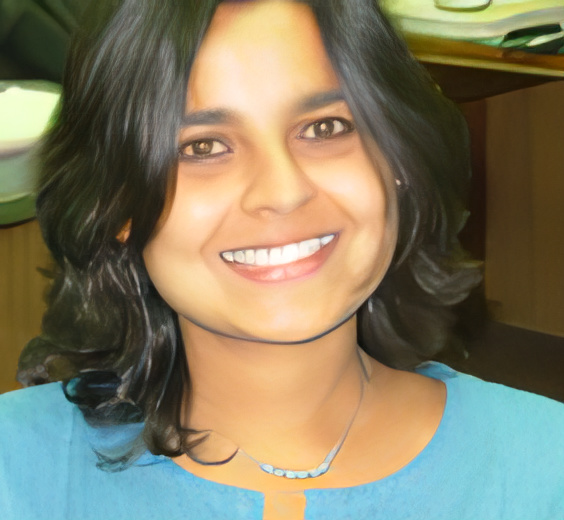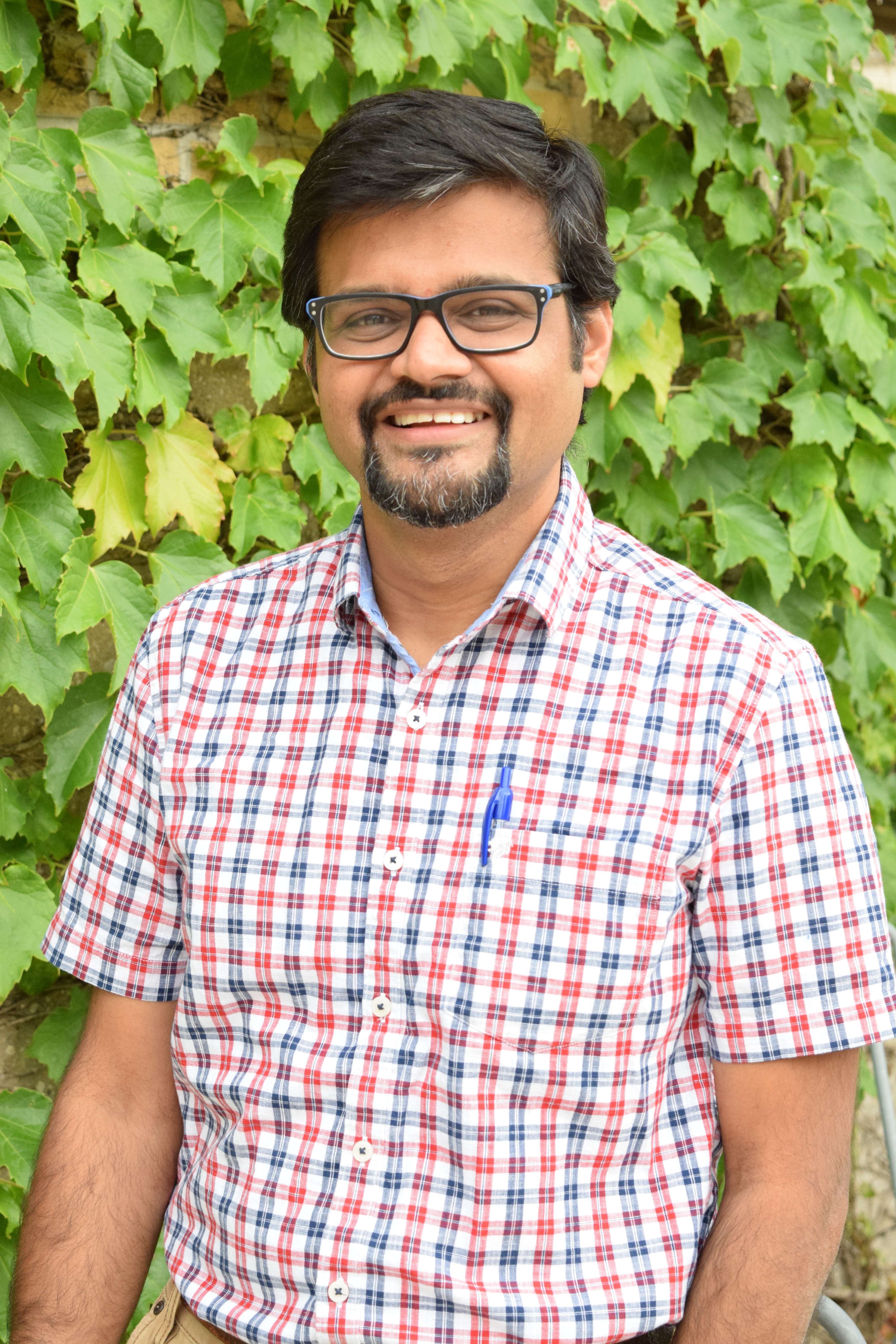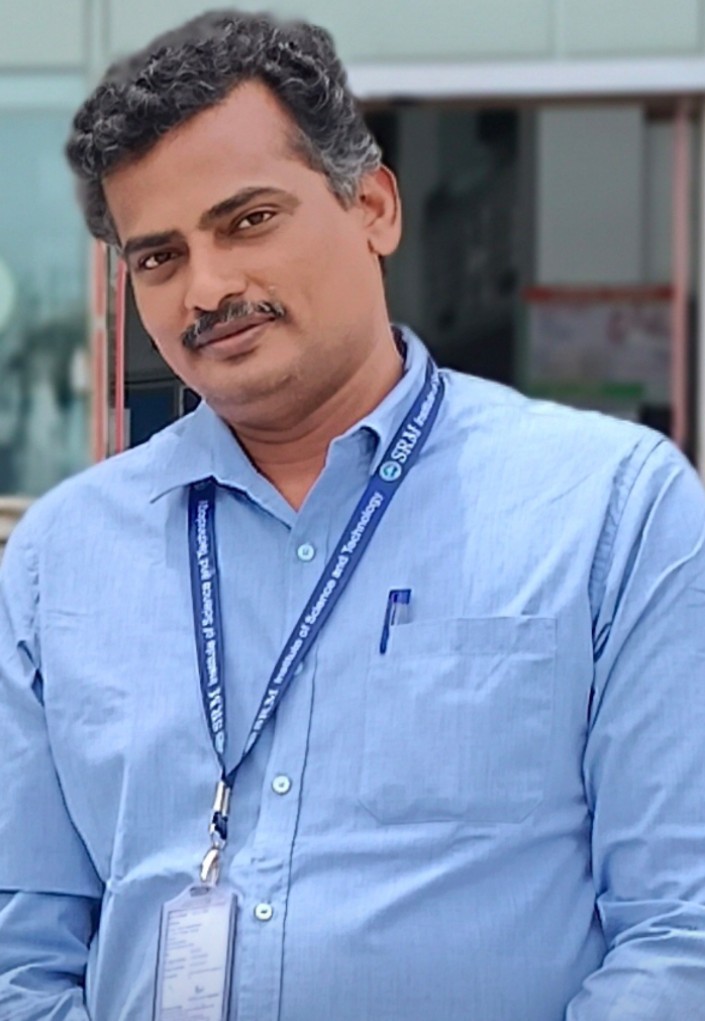Prof. B. Jayaram,Emeritus Professor, Indian Institute of Technology(IIT) Delhi
Title: Genome to drug in silico: a country path today; a highway tomorrow
Dr.Neha Sureshchandra Gandhi, Ph.D
Adjunct Professor
Queensland University of Technology, Australia
Dr.Gandhi's research uses advanced computer simulation methods including machine learning to understand the structure, function and interactions of biomolecules like proteins, drugs and carbohydrates. Her research provides detailed insight into the mechanisms and physical behaviours of these biomolecules of importance to health and material science. During the last fourteen years, she has worked extensively on the molecular modelling of the complex carbohydrates glycosaminoglycans (GAGs), such as heparin and heparan sulphate, and their interactions with proteins.
Her current projects in her research group focus on characterising the structure and function of intrinsically disordered proteins, G-Protein coupled receptors, the role of post-translational modifications, drug discovery (cancer, ageing, antivirals and antibacterials) and polymers (e.g. poly-oxazolines, hydrogels, etc).
Email: [email protected]
Dr.Durba Sengupta, Ph.D
Scientist Fellow (Ramalingaswami Fellow)
Physics and Materials Chemistry Division
CSIR-National Chemical Laboratory, India
Dr.Durba's research is in the field of Computational Biology, Bioinformatics, Structural Biology and Physical Chemistry. Her main focus is on biology membranes and membrane receptors. The main objective of her research is to understand Self Organisation and Self Assembly in complex bio-systems, using the tools of physical chemistry. The current focus of her research is Membrane biology and understanding the structure, dynamics
and functions of proteins, lipids, sugars and sterols within the membrane. She uses multi-scale simulations, molecular modeling and electrostatic calculations and compare to bio-physical techniques such as FCCS, cryo RM and electrophysiology.
Email: [email protected]
Ragothaman M. Yennamalli, Ph.D
Senior Assistant Professor
SASTRA Deemed University, India
Dr. Yennamalli is a computational biologist with a more than a decade of experience in predictive modelling and biomolecular simulation projects. Dr. Yennamalli’s skills involve machine learning, systems biology, molecular docking, molecular dynamics simulation, coarse grained modelling, data mining, data analytics, and molecular modelling. He has contributed to multiple diverse projects that focus on basic and applied sciences. His experience in computational structural biology is critical in finding answers to bigger questions in life.
After the completion of his PhD degree from the prestigious Jawaharlal Nehru University, he gained more experience as a Post Doctoral Research Associate at Iowa State University, University of Wisconsin-Madison, and at Rice University, USA.
In 2018, he was featured in the Early-Career Researcher series of Communications Biology (Nature Publications).
Email: [email protected]
Dr.Aditya Kumar Padhi, Ph.D
Assistant Professor
School of Bio-chemical Engineering, IIT(BHU)
Dr. Aditya Kumar Padhi is an Assistant Professor at the School of Biochemical
Engineering, Indian Institute of Technology (BHU), Varanasi. He obtained his Ph.D. in 2015 from the
Indian Institute of Technology, Delhi (IIT Delhi). His research interest lies in the area of
Computational Biology, Structural & Translational Bioinformatics, Computational Biophysics, High-
throughput Protein Design, Predictive Modeling, Biomolecular Modeling and Conformational
Analyses. He has developed several computational pipelines and protocols for identifying resistance
mutations in pathogens and designing proteins with non-natural amino acids. His current research
focuses on de novo designing and redesigning novel proteins, enzymes, and other therapeutics of
biotechnological and therapeutic significance. He has published >50 papers in reputed international
journals with a cumulative impact factor of more than 250. He has been an active reviewer for several
reputed society journals. His interdisciplinary research was supported by several international
fellowships, such as the Japan Society for Promotion of Science, the Tokyo Biochemical Research
Foundation, and the Takeda Science Foundation and national funding agencies like SER, Odisha DST,
etc. IIT Delhi has also recognized his doctoral research work for the “Distinction in Doctoral
Research Award.” For my contributions to the field of bioinformatics and computational biology, he
was also awarded the Bioinformatics and Drug Discovery Society (BIDDS), India Young Scientist
Award for the Year 2022 and Alexander Fleming Young Scientists Award by the Biofootprints
Society, India for the Year 2023.
Email: [email protected]
Dr.Rajnish, Ph.D
Associate Professor
Department of Pharmaceutical engineering and technology, IIT(BHU)
He is currently working as an Assistant Professor in the Department of Pharmaceutical Engineering & Technology at the Indian Institute of Technology (BHU), Varanasi since November 2019. He has obtained his Ph.D. degree in Pharmaceutical Sciences from the University Institute of Pharmaceutical Sciences,
Panjab University, Chandigarh, India in 2014 on the topic "Synthesis and study on azasteroids as 5α-reductase inhibitors". Soon after the Ph.D. thesis defense in April 2014, he moved to the Centre for Alzheimer Research, Department of Neurobiology, Care Sciences and Society, Karolinska
Institute, Stockholm, Sweden as a postdoctoral research associate and worked with Prof. Taher Darreh-Shori and Prof. Bengt Winblad. In June 2019, he accepted an Assistant Professor position at Centre for Alzheimer Research, Karolinska Institutet, Stockholm, Sweden, and moved to India in
November 2019. He has been awarded the Japan Society for the Promotion of Science summer fellowship to work in the Mizuguchi lab headed by Prof. Kenji Mizuguchi at NIBIOHN, Osaka, Japan during the summer of 2019.
Email: [email protected]
Dr. Prakash Muthuramalingam, Ph.D
Research Professor and Head
Department of Chemistry, College of Engineering & Technology, SRMIST
Dr. Prakash Muthuramalingam completed his B.Sc., and M.Sc., Degrees in Chemistry from Madurai Kamaraj University, Madurai. He completed his doctoral studies at the CSIR-Central Leather Research Institute (CLRI), Chennai. Before joining SRMIST, he worked as a Post-Doctoral Research Fellow at Rice University (Houston, USA), CNRS-ICGM (Montpellier), and Université Paris-Est (UPEM and UPEC) Paris, FRANCE. He also worked on industrial collaborative projects at IIT-Madras and a DST Indo-EU (HYPOMAP) sponsored project at CSIR-CLRI, Chennai. Currently, he is working as a Research Associate Professor at SRMIST, Kattankulathur, and his research interest involves investigating ILs-based composite materials (2D and 3D MOFs) for energy storage, gas storage (H2, CO2, CH4, etc.), carbon capture, activation, conversion, and separation applications. In addition, studies on the structure, stability, dynamics, and functions of biomolecules in ILs using QM, QM/MM, GCMC, and MD Simulations.
Email: [email protected]





